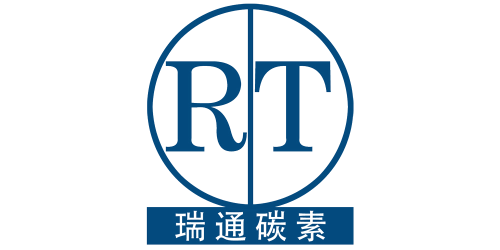
Cheng’an County Government Visits Ruitong Carbon, Emphasizing Green Transformation and Technological Innovation
2025-06-26
On March 21, 2024, Liu Bingsheng, the County Mayor of Cheng’an County, led a delegation to Hebei Ruitong Carbon Co., Ltd. to conduct an in-depth inspection of its production facilities and hold discussions with company leadership. The visit focused on evaluating progress in environmental upgrades and technological innovation, aiming to drive high-quality and sustainable development of the regional carbon materials industry.
Significant Progress in Environmental Upgrades
As a key enterprise in the carbon industry, Ruitong Carbon has made substantial investments in environmental performance improvement. In 2019, the company completed the retrofit of its tunnel baking kilns, adopting the internationally recognized “FEST” flue gas treatment technology. This enabled sulfur dioxide (SO₂) emissions to be reduced to below 50 mg/m³—significantly surpassing Hebei Province’s local environmental standards.
The company has also constructed a new wastewater treatment station, achieving 100% recycling of process wastewater and conserving approximately 50,000 tons of water annually. In terms of solid waste utilization, Ruitong recycles waste carbon blocks generated during production by crushing and reintegrating them into the manufacturing process. As a result, its comprehensive solid waste utilization rate has reached 95%.
During the visit, Mayor Liu emphasized that the carbon industry, traditionally characterized by high energy consumption and emissions, must now strive to achieve “Class A” environmental performance ratings. He urged companies to accelerate the adoption of green technologies and extend the value chain through sustainable innovation.
Strategic Focus on Technological Innovation
Ruitong Carbon announced its plan to jointly establish a Carbon Materials Research Institute in collaboration with Hunan University. The institute will focus on cutting-edge R&D in ultra-high power (UHP) graphite electrodes and specialty carbon materials, aiming to enhance core competitiveness through innovation in materials science, high-temperature performance, and conductivity control.
In 2024, the company successfully developed UHP graphite electrodes with diameters of 600 mm and above, which were certified by the China Iron and Steel Association (CISA), filling a critical gap in Hebei Province's high-end carbon product landscape. These electrodes are widely used in electric arc furnace (EAF) steelmaking, lithium-ion battery anode materials, and specialty metallurgy applications—where strict quality consistency, high thermal stability, and traceability are essential.
Looking ahead, Ruitong plans to further integrate industrial internet technologies into its production operations—including raw material processing, baking, graphitization, machining, and packaging—through the deployment of real-time monitoring, predictive maintenance, and intelligent scheduling systems to enhance operational efficiency and product reliability.
Government Support and Industrial Integration
Mayor Liu stated that the county government will coordinate dedicated funding to support Ruitong’s application for National Green Factory designation. He also proposed the establishment of a Carbon Industry Alliance to strengthen collaboration among upstream and downstream enterprises, consolidate regional industrial resources, and elevate the national competitiveness of Cheng’an’s carbon sector.
He emphasized that as the industry transitions toward intelligent, high-end, and low-carbon development, Ruitong Carbon’s model of green transformation and digital innovation serves as a replicable benchmark for other regional enterprises. He encouraged the company to leverage its forthcoming research institute to drive independent innovation and achieve breakthroughs in core carbon technologies.
Outlook: From Manufacturing to Smart Manufacturing
Under the dual pressures of carbon neutrality goals and global industrial restructuring, the graphite electrode industry must accelerate its transition from traditional manufacturing to high-efficiency, green, and intelligent production models. Ruitong Carbon is actively embracing this trend through comprehensive investment in smart technologies, clean processes, and research collaboration.
The establishment of the Carbon Materials Research Institute, alongside the company's ongoing digital factory initiatives, is expected to strengthen its leadership position in the domestic and global high-end carbon market. These initiatives also provide valuable insights for the technological upgrading and sustainable development of the broader graphite electrode industry.
Please leave us a message
- English
- French
- German
- Portuguese
- Spanish
- Russian
- Japanese
- Korean
- Arabic
- Irish
- Greek
- Turkish
- Italian
- Danish
- Romanian
- Indonesian
- Czech
- Afrikaans
- Swedish
- Polish
- Basque
- Catalan
- Esperanto
- Hindi
- Lao
- Albanian
- Amharic
- Armenian
- Azerbaijani
- Belarusian
- Bengali
- Bosnian
- Bulgarian
- Cebuano
- Chichewa
- Corsican
- Croatian
- Dutch
- Estonian
- Filipino
- Finnish
- Frisian
- Galician
- Georgian
- Gujarati
- Haitian
- Hausa
- Hawaiian
- Hebrew
- Hmong
- Hungarian
- Icelandic
















